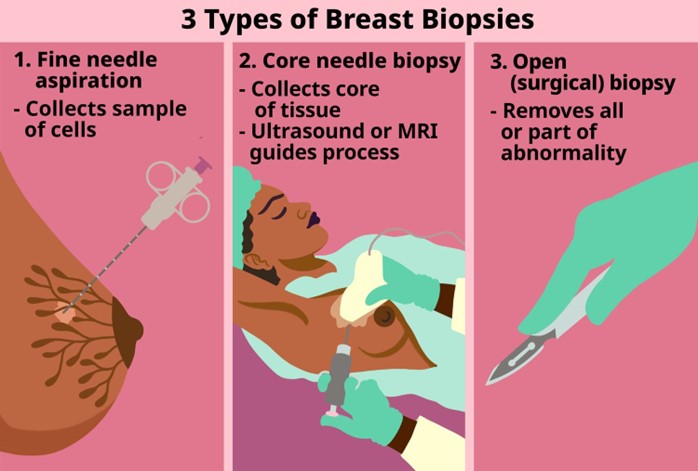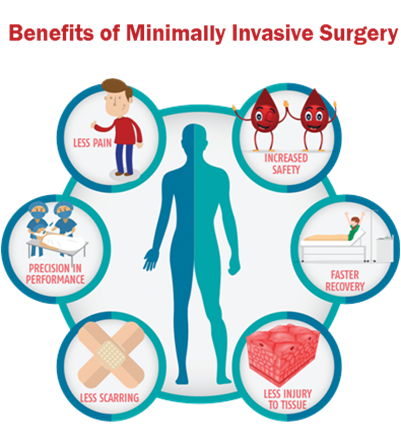A breast biopsy indicates the presence of malignant cells, and the client is scheduled for a mastectomy. When preparing the client's preoperative plan of care, which area would the nurse most likely address as the priority?
Fluid balance
Body image
Urinary elimination
Activity
The Correct Answer is B
Choice A: Fluid balance is not the most likely priority because it is not directly affected by the mastectomy. Fluid balance is the state of equilibrium between the intake and output of fluids in the body. It can be influenced by various factors such as hydration, nutrition, medication, or illness. It can be monitored by measuring vital signs, weight, urine output, or laboratory values. Fluid balance is important for maintaining homeostasis and preventing dehydration or edema, but it is not a specific concern for a client undergoing a mastectomy.
Choice B: Body image is the most likely priority because it is directly affected by the mastectomy. Body image is the perception and attitude that one has toward one's own physical appearance and function. It can be influenced by various factors such as culture, media, self-esteem, or feedback from others. It can be assessed by observing verbal and nonverbal cues, asking open-ended questions, or using standardized tools. Body image is a major psychosocial issue for a client undergoing a mastectomy, as it can affect one's sense of identity, femininity, sexuality, or attractiveness. The nurse should address body image by providing information, support, and referral to appropriate resources.
Choice C: Urinary elimination is not the most likely priority because it is not directly affected by the mastectomy. Urinary elimination is the process of expelling urine from the bladder through the urethra. It can be influenced by various factors such as fluid intake, kidney function, medication, or infection. It can be assessed by measuring urine volume, color, odor, or specific gravity. Urinary elimination is important for maintaining fluid balance and preventing urinary tract infection or retention, but it is not a specific concern for a client undergoing a mastectomy.
Choice D: Activity is not the most likely priority because it is not directly affected by the mastectomy. Activity is the level of physical movement and exercise that one engages in on a daily basis. It can be influenced by various factors such as age, health status, motivation, or environment. It can be assessed by observing mobility, endurance, strength, or coordination. Activity is important for maintaining muscle tone, joint range of motion, circulation, or metabolism, but it is not a specific concern for a client undergoing a mastectomy.

Nursing Test Bank
Naxlex Comprehensive Predictor Exams
Related Questions
Correct Answer is C
Explanation
Choice A: The social worker is not the correct answer because they are not legally responsible for obtaining informed consent for an invasive procedure. The social worker is a professional who provides psychosocial support and advocacy for clients and families, such as counseling, referrals, or discharge planning.
Choice B: The nurse is not the correct answer because they are not legally responsible for obtaining informed consent for an invasive procedure. The nurse is a professional who provides direct care and education for clients and families, such as assessment, medication administration, or teaching. However, the nurse can assist the physician in obtaining informed consent by witnessing the client's signature, verifying the client's understanding, or documenting the process.
Choice C: The physician is the correct answer because they are legally responsible for obtaining informed consent for an invasive procedure. The physician is a professional who diagnoses and treats clients and families, such as performing surgery, prescribing medication, or ordering tests. The physician must explain the purpose, benefits, risks, alternatives, and consequences of the procedure to the client and obtain their voluntary agreement before proceeding.
Choice D: The unit secretary is not the correct answer because they are not legally responsible for obtaining informed consent for an invasive procedure. The unit secretary is a staff member who performs clerical and administrative tasks for the unit, such as answering phones, filing records, or scheduling appointments.

Correct Answer is ["C","D","E"]
Explanation
Choice A reason: Baby oil is not an acceptable lubricant, as it can damage the condom and reduce its effectiveness. The students should use water-based or silicone-based lubricants instead.
Choice B reason: Ensuring a tight fit of the condom is not advisable, as it can cause discomfort and increase the risk of breakage. The students should leave some space at the tip of the condom to collect semen and prevent spillage.
Choice C reason: Only using latex condoms is correct, as they are more effective than other materials in preventing pregnancy and sexually transmitted infections. The students should avoid using condoms made of natural skin or lambskin, as they are porous and can allow viruses to pass through.
Choice D reason: Placing the condom on an erect penis is correct, as it ensures proper application and prevents slippage. The students should unroll the condom over the entire length of the penis before any sexual contact.
Choice E reason: Storing the condoms in a cool dry place is correct, as it prevents exposure to heat, moisture, sunlight, or sharp objects that can damage the condom. The students should check the expiration date and integrity of the condom before use.

Whether you are a student looking to ace your exams or a practicing nurse seeking to enhance your expertise , our nursing education contents will empower you with the confidence and competence to make a difference in the lives of patients and become a respected leader in the healthcare field.
Visit Naxlex, invest in your future and unlock endless possibilities with our unparalleled nursing education contents today
Report Wrong Answer on the Current Question
Do you disagree with the answer? If yes, what is your expected answer? Explain.
Kindly be descriptive with the issue you are facing.
